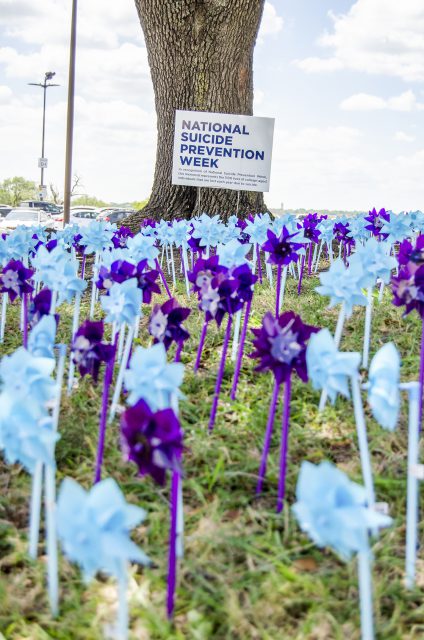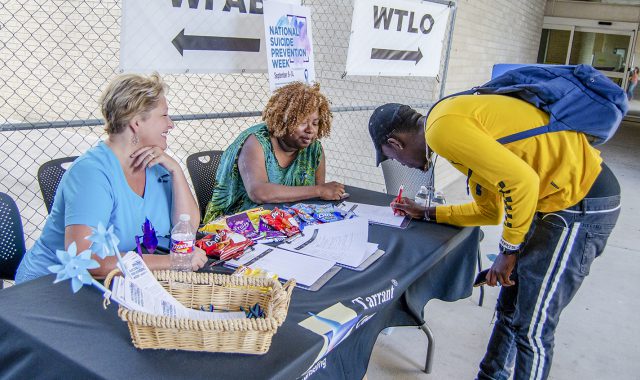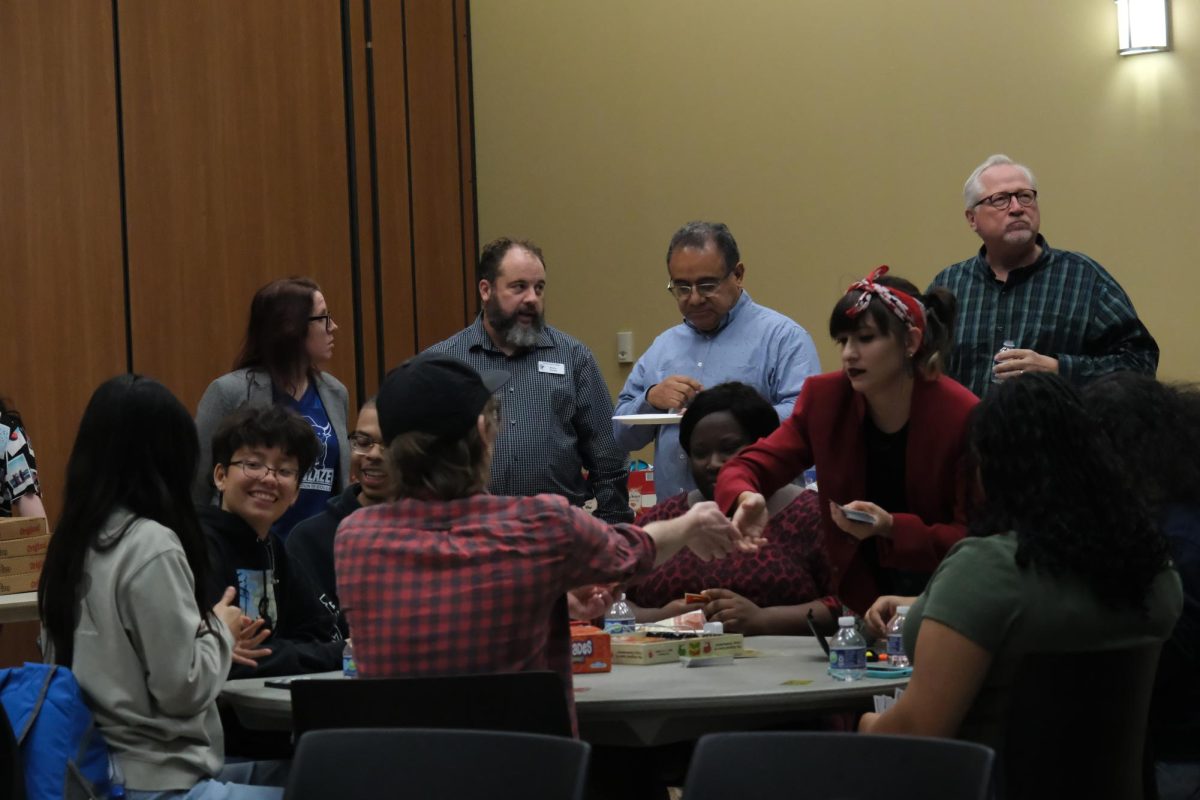| September, 18, 2019 | Gunner Young | campus editor |
|---|

Photo by Kat Parker/The Collegian
Students and faculty were encouraged to have an open dialogue about depression and suicide during NW Campus’ National Suicide Prevention Week hosted by the counseling department.
Not far from one of the campus’ most prominent oak trees, near the entrance to WFAB, tables were set up, and NW counselors handed out literature, ribbons and pinwheels spinning in the wind to encourage students to seek help with their problems and honor those that have been lost due to suicide.
“We are giving out pinwheels and students get the opportunity to take one and place it out there under the tree in honor of the awareness event of someone that they love that has been lost to suicide,” said NW counselor Jamie Stroud.

Photo by Kat Parker/The Collegian
According to the Association of American Universities, one in five college students has thought about or considered committing suicide due to stress from college life.
The study also attributes suicidal thoughts of college students to career-related issues, the death of a loved one, personal appearance and sleep issues.
Suicide is also the second leading cause of death among people 15-35 years old, and four out of five of those lost to suicide show clear warning signs beforehand.
Some of those indicators include fixation on suicide or death, giving away personal items, obtaining self-harm weapons, and increased alcohol and drug use.
NW student John Stephens said that while the awareness event is a good way to handle a sensitive topic, there is not a quick and easy solution to overcoming suicidal thoughts and depression.
“It depends,” Stephens said. “Like, you can have events like this and they can prevent suicide, but the best solution would be to meet other people and make long-lasting relationships with people.”
The pamphlets handed out by the counseling department inform students on how to handle potentially life-threatening events involving suicide.
The pamphlets advise:“Be genuine. Listen. Be patient and stay calm. Be direct. Stay with that person until help arrives.”
If someone is feeling suicidal, the counseling office provides licensed mental health professionals who are able to meet with students during times of crisis.






































